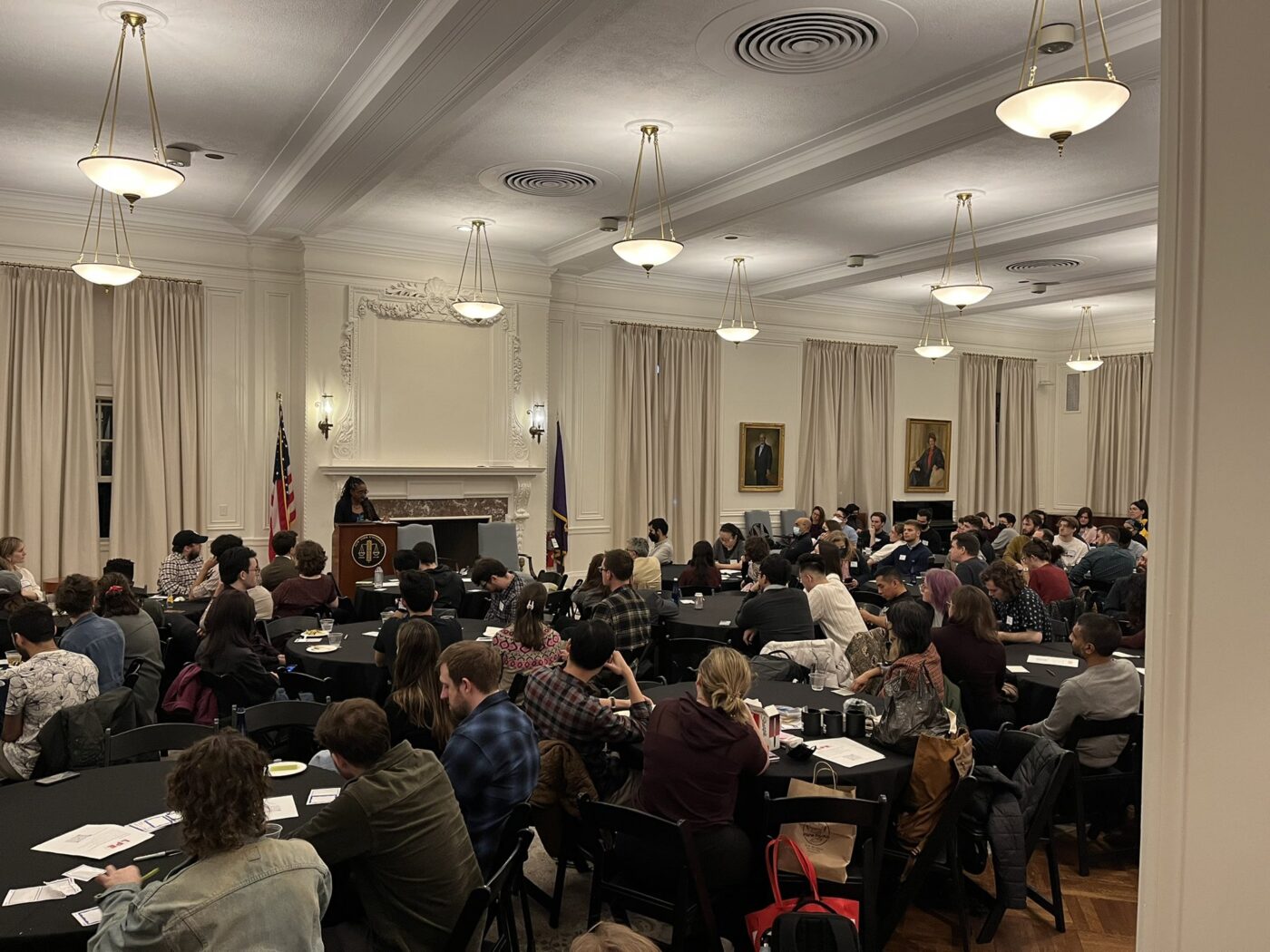At the Blog
This week, we shared a few of our favorite posts from Notice & Comment’s recent symposium on Networks, Platforms, and Utilities, a new casebook by Morgan Ricks, Ganesh Sitaraman, Shelley Welton, and Lev Menand.
On Monday, the authors introduced the casebook by explaining why it’s time to revive the field of “regulated industries.” As they write, “In the closing third of the twentieth century, the long-prevailing view that the public interest demanded a substantial measure of public control over society’s infrastructural resources gave way to a bipartisan distrust of public administration and an abiding faith in the self-regulating power of markets. In the process, deregulatory initiatives ‘transformed’ NPU law, and its animating concepts dropped out of the legal and political imagination. We seek to revive that imagination among students, scholars, and policymakers.”
On Tuesday, Amy Kapczynski continued the discussion, praising the casebook for bringing certain questions and institutions into view, while pressing the authors to pay greater attention to the “political” part of political economy. As she writes, “Things that are so essential generally have to be regulated to be available in some measure equally to all in a decent society…. This opens the door for a critically important concept and value in NPU law, which we might call universal access (or even decommodification, aspirationally?) that we need political and not just ‘economic’ tools to think about.”
And on Thursday, Yochai Benkler focused his comments on three intellectual choices that make the book an important pedagogical pathway for the emerging Law and Political Economy movement: “First, they organize the casebook by sector, rather than by legal or economic doctrinal demands. Second, they situate each sector in its actual historical and material context as a precondition to understanding how it operates. Third, they take a functional approach to the interaction of legislation, regulation, and adjudication as they play out in each sector during the period in which that legislation, regulation, or adjudication is brought to bear on the real world functioning of the sector. In combining these three, the casebook negates precisely the major pernicious tendencies of presently dominant approaches to thinking about how law ought to apply to these basic structural foundations of American economy and society: law and economics and neo-formalism.”
In LPE Land
Pictured below, Angela Harris presides over the the opening round of the World Series of Poker. Wait, we’re being told that’s actually the wildly successful kick off of LPE NYC!!

Raúl Carrillo posted a forthcoming paper, “Seeing Through Money: Democracy, Data Governance, & the Digital Dollar,” in which he addresses digital privacy & data governance in the future US payments system from a user POV.
Raymond H. Brescia posted a forthcoming paper, “Course Correction: Abolition, Grand Strategy, and the Case Against Golf,” which uses the case study of the problems posed by golf courses to explore questions of institutional change.
CFP: International Law and the Challenge of Populism. This workshop series will reflect on the relationship between right-wing populism and international law in light of both recent events and longer term trends and structures.
CFP: The editors of the forthcoming Routledge Handbook of Cooperative Economics & Management cordially invite interested scholars to contribute to this important, timely, and transdisciplinary reference work.
CFP: Lauren Berlant Graduate Student Conference. Invites graduate students to present papers on the power of the state over life and death and its consequences for feminist and abolitionist critique and struggle. Two-hundred fifty word abstracts due today!
Sanjukta Paul and Marshall Steinbaum wrote a comment suggesting that the FTC adopt, as part of its worker noncompete rule, the “ABC test” for employment status.
In Jacobin, an interview with political philosopher Nicholas Vrousalis about his new book, Exploitation as Domination: What Makes Capitalism Unjust.
In the Nation, a profile of Jennifer Abruzzo: “Of all of the members of Biden’s administration, it’s arguably Abruzzo who has brought about the most significant changes for American workers.”


